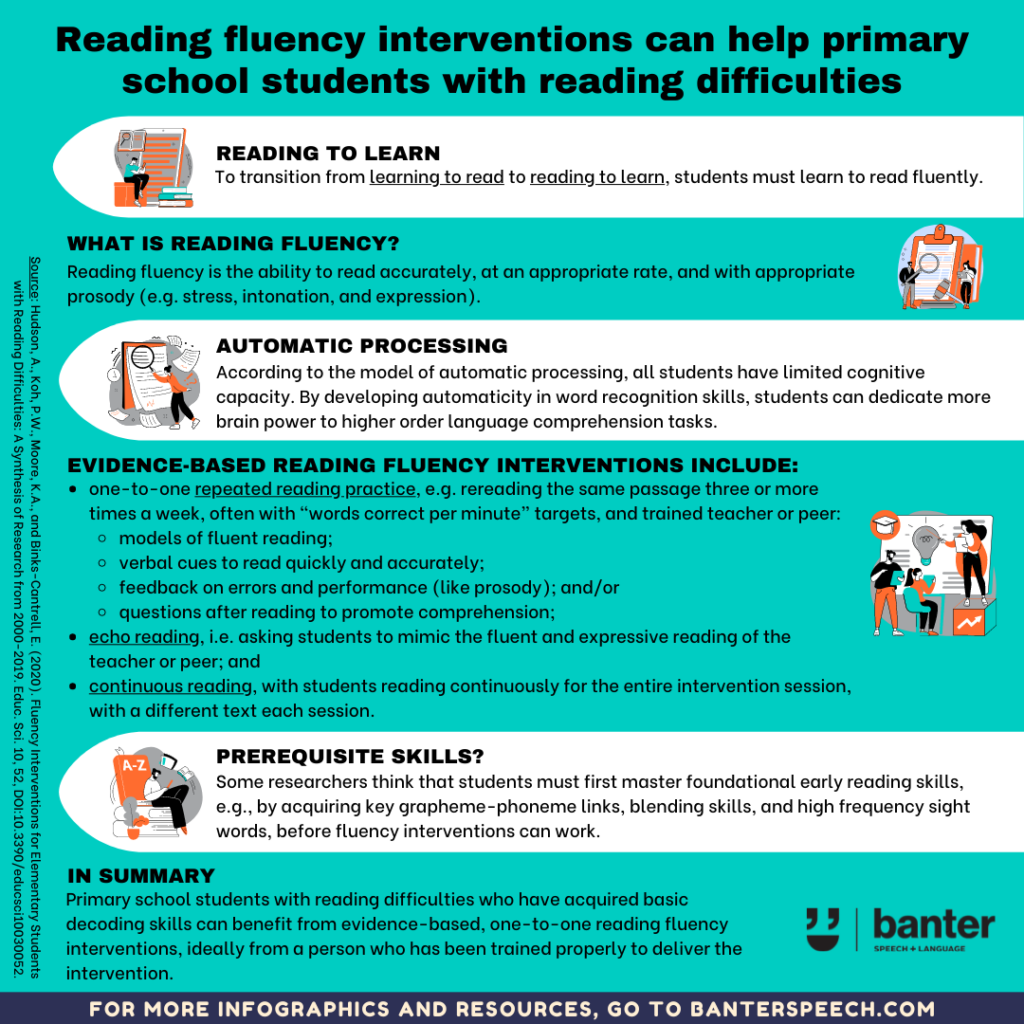To transition from learning to read to reading to learn, students must learn to read fluently.
Reading fluency is the ability to read accurately, at an appropriate rate, and with appropriate prosody (e.g. stress, intonation, and expression).
According to the model of automatic processing, all students have limited cognitive capacity. By developing automaticity in word recognition skills, students can dedicate more brain power to higher order language comprehension tasks.
Evidence-based reading fluency interventions include:
- one-to-one repeated reading practice, e.g. rereading the same passage three or more times a week, often with “words correct per minute” targets, and trained teacher or peer:
- models of fluent reading;
- verbal cues to read quickly and accurately;
- feedback on errors and performance (like prosody); and/or
- questions after reading to promote comprehension.
- echo reading, i.e. asking students to mimic the fluent and expressive reading of the teacher or peer; and
- continuous reading, with students reading continuously for the entire intervention session, with a different text each session.
Some researchers think that students must first master foundational early reading skills, e.g., by acquiring key grapheme-phoneme links, blending skills, and high frequency sight words, before fluency interventions can work.
To sum up: primary school students with reading difficulties who have acquired basic decoding skills, can benefit from evidence-based one-to-one reading fluency interventions, ideally from a person who has been trained properly to deliver the intervention.

Source: Hudson, A., Koh, P.W., Moore, K.A., and Binks-Cantrell, E. (2020). Fluency Interventions for Elementary Students with Reading Difficulties: A Synthesis of Research from 2000-2019. Educ. Sci. 10, 52, DOI:10.3390/educsci10030052.
Related articles:
- For beginning readers, where should we start teaching? Phonics, sight words or both?
- The forgotten reading skill: fluency, and why it matters
- Oral language comprehension: What is it? A plain English explainer

Hi there, I’m David Kinnane.
Principal Speech Pathologist, Banter Speech & Language
Our talented team of certified practising speech pathologists provide unhurried, personalised and evidence-based speech pathology care to children and adults in the Inner West of Sydney and beyond, both in our clinic and via telehealth.


Leave a Reply